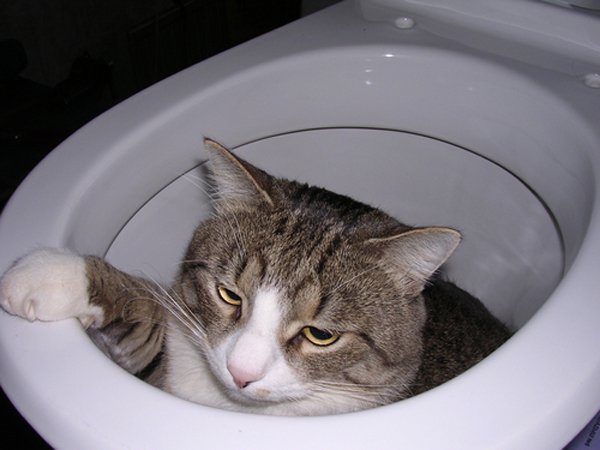This article listed below on the subject of Can You Flush Cat Poop Down The Toilet? is truly insightful. You should check this stuff out.

Intro
As feline proprietors, it's necessary to bear in mind exactly how we dispose of our feline good friends' waste. While it may appear convenient to purge feline poop down the commode, this method can have destructive repercussions for both the setting and human health and wellness.
Ecological Impact
Flushing feline poop presents damaging pathogens and bloodsuckers right into the supply of water, posturing a significant danger to aquatic communities. These impurities can negatively affect aquatic life and compromise water top quality.
Health and wellness Risks
In addition to environmental problems, flushing cat waste can additionally pose health and wellness risks to human beings. Feline feces may include Toxoplasma gondii, a parasite that can trigger toxoplasmosis-- a potentially extreme disease, particularly for expecting females and individuals with damaged body immune systems.
Alternatives to Flushing
Luckily, there are safer and a lot more accountable means to dispose of cat poop. Think about the adhering to choices:
1. Scoop and Dispose in Trash
The most common method of taking care of cat poop is to scoop it into a biodegradable bag and throw it in the trash. Be sure to use a devoted litter scoop and get rid of the waste without delay.
2. Usage Biodegradable Litter
Opt for naturally degradable feline trash made from products such as corn or wheat. These clutters are environmentally friendly and can be safely taken care of in the garbage.
3. Hide in the Yard
If you have a backyard, take into consideration hiding feline waste in an assigned location away from vegetable yards and water resources. Be sure to dig deep adequate to prevent contamination of groundwater.
4. Set Up a Pet Waste Disposal System
Purchase a family pet waste disposal system especially developed for cat waste. These systems make use of enzymes to break down the waste, lowering smell and ecological impact.
Final thought
Responsible pet ownership prolongs beyond providing food and sanctuary-- it likewise involves correct waste monitoring. By avoiding flushing cat poop down the commode and selecting alternate disposal methods, we can decrease our ecological impact and safeguard human health.
Why Can’t I Flush Cat Poop?
It Spreads a Parasite
Cats are frequently infected with a parasite called toxoplasma gondii. The parasite causes an infection called toxoplasmosis. It is usually harmless to cats. The parasite only uses cat poop as a host for its eggs. Otherwise, the cat’s immune system usually keeps the infection at low enough levels to maintain its own health. But it does not stop the develop of eggs. These eggs are tiny and surprisingly tough. They may survive for a year before they begin to grow. But that’s the problem.
Our wastewater system is not designed to deal with toxoplasmosis eggs. Instead, most eggs will flush from your toilet into sewers and wastewater management plants. After the sewage is treated for many other harmful things in it, it is typically released into local rivers, lakes, or oceans. Here, the toxoplasmosis eggs can find new hosts, including starfish, crabs, otters, and many other wildlife. For many, this is a significant risk to their health. Toxoplasmosis can also end up infecting water sources that are important for agriculture, which means our deer, pigs, and sheep can get infected too.
Is There Risk to Humans?
There can be a risk to human life from flushing cat poop down the toilet. If you do so, the parasites from your cat’s poop can end up in shellfish, game animals, or livestock. If this meat is then served raw or undercooked, the people who eat it can get sick.
In fact, according to the CDC, 40 million people in the United States are infected with toxoplasma gondii. They get it from exposure to infected seafood, or from some kind of cat poop contamination, like drinking from a stream that is contaminated or touching anything that has come into contact with cat poop. That includes just cleaning a cat litter box.
Most people who get infected with these parasites will not develop any symptoms. However, for pregnant women or for those with compromised immune systems, the parasite can cause severe health problems.
How to Handle Cat Poop
The best way to handle cat poop is actually to clean the box more often. The eggs that the parasite sheds will not become active until one to five days after the cat poops. That means that if you clean daily, you’re much less likely to come into direct contact with infectious eggs.
That said, always dispose of cat poop in the garbage and not down the toilet. Wash your hands before and after you clean the litter box, and bring the bag of poop right outside to your garbage bins.
https://trenchlesssolutionsusa.com/why-cant-i-flush-cat-poop/

As a keen reader about Don’t flush cat feces down the toilet, I was thinking sharing that section was really helpful. Those who enjoyed our blog posting if you please don't forget to share it. Thanks so much for going through it.
Call Today